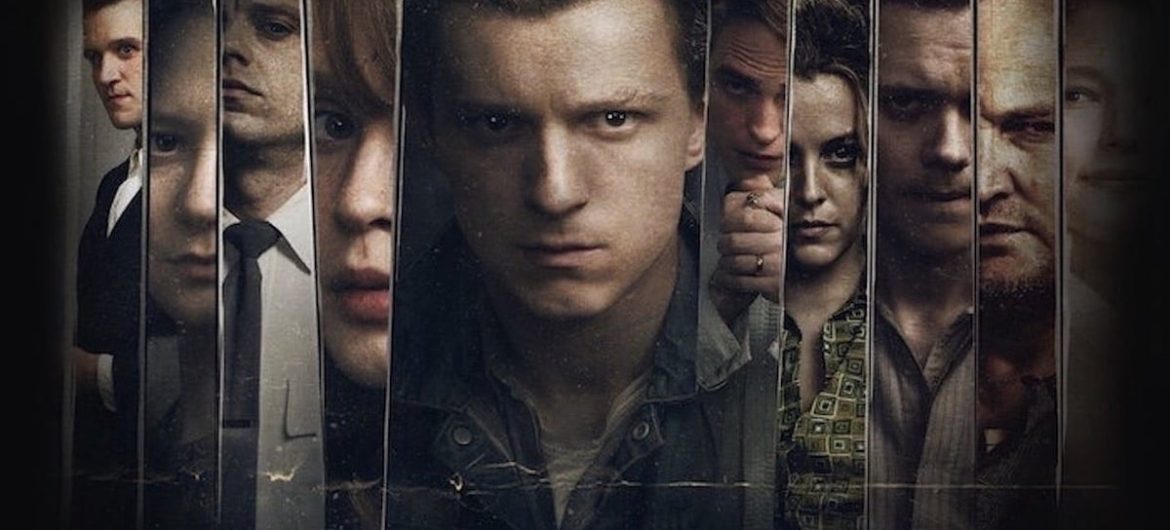The Devil All the Time is a 2020 American Southern Gothic thriller film directed by Antonio Campos, from a screenplay co-written with his brother Paulo Campos, based on the novel of the same name by Donald Ray Pollock, who also serves as the film’s narrator.
The film first introduces us to a man named Willard Russell, played by Bill Skarsgård. He lives in a small Ohio paper-mill town called Knockemstiff. The traumas that Willard experienced as a soldier during World War II have given him a powerful if sometimes disturbing set of religious convictions: Willard believes that he can influence God’s will, if he just prays hard enough and performs the occasional blood sacrifice, like shooting the family dog.
 One of the heavier themes of The Devil All the Time is the way sin and trauma are often handed down from one generation to the next. And so Willard passes his violence along to his 9-year-old son, Arvin. After his father dies tragically, Arvin is sent to live in West Virginia with his grandmother and an adopted stepsister, Lenora.
One of the heavier themes of The Devil All the Time is the way sin and trauma are often handed down from one generation to the next. And so Willard passes his violence along to his 9-year-old son, Arvin. After his father dies tragically, Arvin is sent to live in West Virginia with his grandmother and an adopted stepsister, Lenora.
 Arvin has a good heart but a fierce temper, and he refuses to let evil go unpunished. And it’s no accident that most of the evil deeds in this movie are committed by men in positions of authority, especially religious authority. Harry Melling plays an oily preacher whose sermons are full of fire and brimstone, and who becomes obsessed with the idea that he can bring the dead back to life — even if he has to kill somebody first to prove it. Years later, another Scripture-spouting charlatan shows up: a sinister minister who goes by the flamboyant name of Preston Teagardin, and who is played with equal flamboyance by Robert Pattinson.
Arvin has a good heart but a fierce temper, and he refuses to let evil go unpunished. And it’s no accident that most of the evil deeds in this movie are committed by men in positions of authority, especially religious authority. Harry Melling plays an oily preacher whose sermons are full of fire and brimstone, and who becomes obsessed with the idea that he can bring the dead back to life — even if he has to kill somebody first to prove it. Years later, another Scripture-spouting charlatan shows up: a sinister minister who goes by the flamboyant name of Preston Teagardin, and who is played with equal flamboyance by Robert Pattinson.
There are a lot of other nasty customers prowling around the edges of this movie, including a corrupt local sheriff, played by Sebastian Stan, and a devious married couple (Jason Clarke and Riley Keough) who like to pick up hitchhikers and have their twisted way with them.
Everyone’s a sinner in The Devil All the Time, and with very few exceptions, nearly every character is either predator or prey. That brutally pessimistic view of the world is nothing new for the gifted director Antonio Campos, whose previous movies include Afterschool and Christine — disturbing psychological dramas that were also sharp critiques of technology and media and their power over a mass audience.





